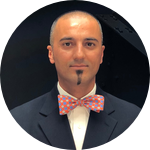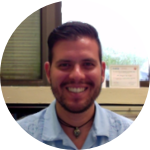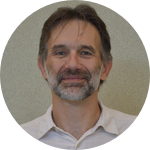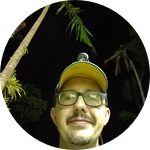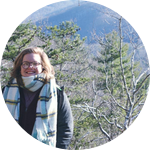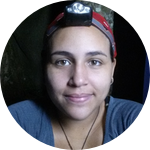About This Project
Puerto Rico is a U.S. territory with approximately 3.4 million inhabitants that experiences periodic outbreaks of new and emerging mosquito pathogens like dengue, Zika, chickungunya, and West Nile. However, it has been more than 80 years since a complete island-wide survey of mosquitoes has been conducted. Without complete and accurate knowledge of which mosquitoes are present and their distribution, planning effective control efforts and understanding disease dynamics is problematic.
Ask the Scientists
Join The DiscussionWhat is the context of this research?
Unlike other parts of the United States, Puerto Rico routinely experiences outbreaks of several important mosquito-borne diseases. Historically, Puerto Rico saw outbreaks of malaria, although locally acquired cases are now rare. Dengue is common on the island and occurs in periodic epidemics. During 2015 the island experienced an outbreak of a new pathogen, chikungunya. Soon after this, Puerto Rico saw the emergence of a new arbovirus, Zika, which spread across south and central America and the Caribbean. The Caribbean generally, and Puerto Rico specifically, serve as a potential emergence point for new mosquito-borne diseases for the mainland United States, and thus understanding mosquito distributions on the island is of paramount importance.
What is the significance of this project?
Puerto Rico can serve as a potential emergence point for new mosquito-borne diseases for the mainland U.S., as the mainland is home to over 5 million individuals who emigrated from Puerto Rico. Thus travel between the U.S. mainland and Puerto Rico is likely significant and it is therefore important to identify mosquito species on the island to better understand disease dynamics both on Puerto Rico and location connected by travel. Because current keys are also generally lacking for other Caribbean islands (e.g. USVI), this work will have relevance to a wider geographic area where similar mosquito species assemblages may occur. Our work will also fill knowledge gaps until vector control agencies are developed on an island-wide basis.
What are the goals of the project?
We will conduct an island survey of larvae and adult mosquitoes that lead to a better understanding of vector dynamics. At present, we don’t know what species occur on the island nor where they can be found as available surveys are at least 80 years old.
We will produce a dichotomous key with species distributions. Because up to date keys are also generally lacking for other Caribbean islands (e.g., U.S. Virgin Islands), this work will have relevance and applications to other geographic area where similar mosquito species assemblages may occur.
We will collaborate with staff at the Walter Reed Biosystematics Unit of the Smithsonian Institution, who will verify our mosquito identifications and perform molecular identifications using DNA barcoding.
Budget
We plan to spend 20 days sampling the island, with 27 designated sampling locations that occur across all major biomes. Given the conditions and terrain of the island roads since Hurricane Maria, we will need a 4x4 vehicle large enough to transport sampling supplies and personal items. The lodging will include stays in more traditional hotels and more inexpensive field stations. Barcoding funds will allow us to get genetic level species identifications for a sample of adult mosquitoes collected from around the island. These samples and a representative set of mosquitoes will be placed in the Walter Reed Biosystematics Unit at the Smithsonian Institution. The Yee Lab has all the necessary trapping materials, vials, and other collecting supplies to complete the work.
Endorsed by
 Project Timeline
Project Timeline
Arrive on Puerto Rico on 3 August 2018
Trapping begins 4 August
Trapping ends on 22 August
Depart Puerto Rico 23 August
May 28, 2018
Project Launched
Aug 03, 2018
Mosquito collection begins
Aug 23, 2018
Mosquito collection ends
Sep 01, 2018
Identification of adult and larval mosquitoes
Meet the Team
Donald Yee
I got my start as a scientist collecting insects in my back yard near Detroit, Michigan. Those early days have taken me rather far afield, and now I study the ecology of mosquitoes and other insects around the southern United States. I began my graduate career at Texas Tech University under Michael Willig where I explored how spatial and temporal factors affected communities of aquatic insects, including mosquitoes, in the flowers (bracts) of a tropical herb, Heliconia caribaea, in Puerto Rico. I then moved to Illinois State University for my doctorate under Steven Juliano, where I examined how microorganisms and energy flow affect communities of medically-important mosquitoes in both tires and tree hole systems. Several projects assessed community patterns of mosquitoes and interactions between native mosquitoes and the invasive mosquito, Aedes albopictus. My post doc was conducted under Steven Vamosi, at the University of Calgary, with whom I continue to collaborate to examine differences in mosquito behavior and stoichiometry within a phylogenetic framework. To date I have published 39 peer reviewed papers, two book chapters, and edited one book.
I joined the faculty at the University of Southern Mississippi in 2008, and since then I've received funding from NIH, DOD, NSF, and the State of Mississippi to explore the ecology of medically important mosquitoes. Starting in 2016, I have been working in Puerto Rico to understand how local environmental patterns, urbanization, and resources affect populations of Aedes aegypti, the yellow fever mosquito. My current funding from NSF focuses on how Hurricane Maria, which passed over the island in September 2017, affected those same mosquitoes as well as the pathogens it transmits.
As both a student and faculty member, I've spent over 12 months living in Puerto Rico. I'm traveled to most places on the island, and have working relationship with other researchers and local and federal agencies (e.g., CDC).
Catherine Dean
During my undergraduate career at the University of Southern Mississippi, I took a course in tropical ecology where I learned about the ecology of tropical rain forests. I studied abroad in Belize where I had a hands-on experience learning about the ecology in the tropics. While in Belize, I fell in love with the tropics and was amazed with everything there is to learn in these environments.
Upon returning, I joined Don Yee’s aquatic insect ecology laboratory as a research assistant. I assisted on a project funded by the Mississippi State Department of Health (MSDH) where we sampled Mississippi for the yellow fever mosquito, Aedes aegypti, which is known to vector viruses such as Zika.
After working with Dr. Yee for a year, I was accepted as a graduate student into his lab. My research interests lie in the field of mosquito ecology, specifically how the environment affects stoichiometry (i.e., carbon and nitrogen) within medically important mosquitoes. Since starting graduate school, I have continued sampling southern Mississippi for Aedes aegypti, and other species in containers. During the summer, I intern for the MSDH where I perform West Nile Virus surveillance in southern Mississippi. To further my knowledge of the identification of mosquito larvae and adults, I took a two-week training course on species-level identification of the mosquitoes of North America at the Florida Medical Entomology Laboratory in Vero Beach, Florida, where I was certified as a Mosquito Identification Specialist.
My experience and knowledge of field sampling techniques, mosquito ecology, and identification will be invaluable when sampling Puerto Rico to develop a comprehensive list of the mosquito species on the island. Knowing which species are present will be beneficial to public health and future research on mosquitoes. I am very excited about the opportunity to travel to Puerto Rico where I will be able to apply my skill set and broaden my knowledge within the tropics.
Limarie Reyes-Torres
I’m interested in understanding the relationships between insect ecology, anthropogenic disturbances, and ecosystem processes. I’m from Puerto Rico and as an undergraduate participated in a Research Experience for Undergraduates (REU) summer program at El Verde Field Station in Luquillo, Puerto Rico. I studied leaf litter selection and its effect on organic matter processing by a species of caddisfly. I did my master’s in the University of Puerto Rico Rio Piedras where I studied the life history, phenology, and response to natural disturbances of that same caddisfly species.
In August 2017 I started my Ph.D. at the University of Southern Mississippi where I joined the Yee Lab of Aquatic Insect Ecology. Since January 2018 I’ve been working on NSF-funded research on populations of Aedes aegypti and disease transmission in San Juan, Puerto Rico after Hurricane Maria. I’m very interested in mosquito ecology, especially in my native Puerto Rico where more recent tools and research are needed to understand mosquito distribution, dispersal, disease transmission, and to apply better vector control practices.
I’m a certified Mosquito Identification Specialist by the Florida Medical Entomology Laboratory with knowledge on North American larvae and adult identification. This expertise is especially helpful for the field work and identification I’ve been doing and will continue doing in Puerto Rico. My plan is to focus my dissertation on the ecology of mosquitoes in Puerto Rico.
I have experience with larval and adult mosquito sampling and identification. I’ve lived in Puerto Rico my whole life and have been traveling back to my island periodically for research. I’m bringing the insider’s eye into this research group. I know my way around the island, obviously speak Spanish (the local language), and have many professional and personal connections across Puerto Rico.
Project Backers
- 40Backers
- 163%Funded
- $8,162Total Donations
- $204.05Average Donation
